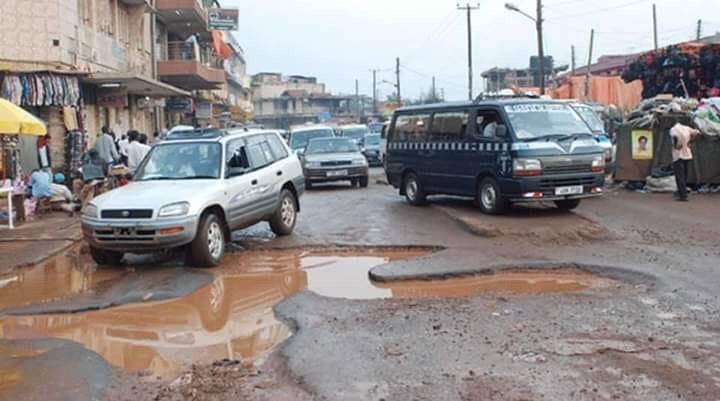The Visitor's Cup
I remained motionless in the living room, fixated on the wall clock. It read 4 P.M., so I figured I had an hour to exorcise the playfulness and practice the grim expression I needed to wear the minute my mother walked through the door. Sadly, like most kids, my mind kept oscillating between how much trouble I was in and how much fun I’d had playing with neighbours. For a moment, I nearly forgot about the creeping anxiety that was growing with each passing minute.
Beep! Beep!
At the sound of the car horn, I remembered the reason for my anxiety—I had broken one of the “visitor’s cups”. As my mom drove in, I struggled with my speech. Although I had promised myself I wouldn’t cry, I could feel the tears piercing my eyelids. Anyone who's grown up in an African home knows that things go a lot easier if you report yourself before you’re caught.
“Welcome back, Mommy,” I whispered while staring at the floor. She instantly knew something was up, so she stood in the doorway and waited for the hammer to drop. “Mommy, while we were playing, I accidentally broke the cup.”
Which cup?
“The visitor’s cup”.
Silence. Every African kid knows how bad silence is. You’d rather be yelled, at or even spanked than have to decipher what that dreaded silence means.
She sighed, “kanzigye.”
I could’ve prayed for the ground to swallow me whole. At 10, there was nothing I feared more in this world than my mom’s wrath—and I feared a lot of things. That story ended the same way all my other childhood debacles ended- I was told to bring “the stick” from its comfortable vantage point in the corner of the living room.
This isn’t a story about being spanked or growing up in an African home. Not exactly. This story is about the teacup and how we, as Africans, have always been groomed to save the absolute best for guests. Teacups, forks, and even table mats are distinguished from the day they enter the home. These are only used by very special guests. In fact, you can usually tell how special the guest is by whether they receive the royal treatment or not.
We grow up with the belief that the people at home aren’t worth the trouble, and we carry this mindset into every facet of our adult lives. Don’t believe me? Just look at our infrastructure, healthcare... the bloody airport!
Many issues in our country receive attention and are only addressed when a “visitor” is expected to inspect how their foreign aid is being utilized. It is in times such as these that extensive roadwork is undertaken- often restricted to the route the visitor is anticipated to use. Government officials go to great lengths to eliminate any visible signs that might suggest we are not performing as well as we wish to portray.
In my mind, the email (or WhatsApp message) goes something like this:
To whom it may concern,
Please enact the following:
- Remove all street kids.
- Pick up trash along the stated route.
- New uniforms for policemen and traffic officers along the route.
- Call the Chinese guy to cover potholes A1 to D12.
- Plant flowers (Check if natural can grow in time, otherwise use plastic)
- Arrest all idlers.
- Arrest all street vendors.
Signed,
Mr. X
As an African, I'm well acquainted with the standard operating procedure in the presence of such visitors — be seen (happy) and not heard. I dare not comment on the fact that it would be more economical to maintain the infrastructure even in the absence of our distinguished guest.
I must smile if the visitor’s entourage happens to pass by, possibly even waving—an indication that I am a contented citizen of this country. If I find myself in the new hospital wing when the said visitor arrives, I should act as though I’m accustomed to the attentive nurses and qualified doctors. I must play my role as I was taught as a child because the visitor must never be privy to the family drama.
And when, at last, the visitor departs after their 2.5-day stay, I shouldn't entertain thoughts about the long-term maintenance of the new road, hospital ward, or school facility. That's impractical. I am African; I should always remember that, for me, the essentials work just fine. In due course, when the road reverts to its previous state, as it inevitably does, and the hospital ward remains understaffed and understocked, as is customary, at least I can hold onto the cherished memory of the visitor who once graced my country and waved at me.

Post a comment